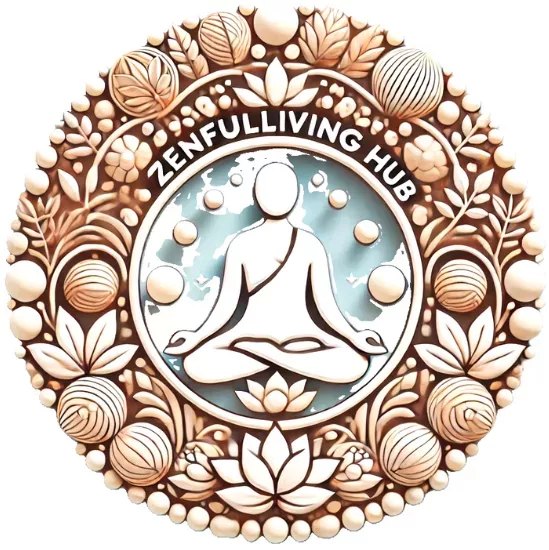
Self-awareness might seem like knowing what you ordered for breakfast, but it’s so much deeper. It’s about being in sync with your thoughts, feelings, and actions. Think of it as tuning your mental GPS. You get a clearer map of your internal states, leading to better decisions and healthier relationships.
Understanding Self-Awareness
Internal self-awareness is like understanding your own operating system. What’s your default mode when you’re stressed? Happy? Recognizing these patterns can be a game-changer. Then there’s external self-awareness, where you gauge how others perceive you. Sometimes, a close friend’s perspective can illuminate things we miss.
Actionable Tips:
-
Reflect Daily: Spend 5 minutes each day journaling about your thoughts and feelings.
-
Seek Feedback: Regularly ask trusted friends or colleagues for their honest perceptions of you.
Harnessing the Power of Mindfulness
Mindfulness is your toolkit for understanding your internal states. It’s like a mental workout that strengthens your ability to be present and aware. Ever tried meditation? It’s like hitting pause on a chaotic playlist of thoughts and emotions. You sit, you breathe, and you observe. No judgments, just awareness. Research from institutions like Harvard shows mindfulness can reduce stress and improve focus.
How to Get Started:
-
Meditation: Spend 10 minutes daily in a quiet space. Focus on your breath.
-
Body Scan: Lie down and mentally scan each part of your body, noting any tension or sensations.
Incorporating these practices isn’t just about solving problems; it’s about understanding yourself better. When you know your triggers or what truly makes you tick, you set the stage for real personal growth. Embrace the journey of self-exploration, and watch the transformation unfold.
Harnessing the Mind-Body Connection
Ever notice how a stressful day can tighten your shoulders or give you a headache? That’s the mind-body connection in action. Emotions don’t just stay in our head—they manifest physically. Understanding this connection offers a direct line to managing our stress levels and emotional well-being.
Mindfulness further deepens this understanding by helping you tune into these physical signals. It’s not just about identifying emotions; it’s about recognizing how they affect your body and mind together.
Techniques to Explore:
-
Breathing Exercises: Take slow, deep breaths—in for 4 counts, hold for 4, out for 4.
-
Yoga or Tai Chi: Engage in activities that blend physical movement with mental focus.
Building awareness of these signals can enhance clarity in how you experience emotions, providing insight that words might not fully convey. With practice, you’ll be better equipped to manage stress, respond thoughtfully, and maintain balance in your life.
Building Emotional Intelligence Through Mindful Reflection
Emotional intelligence is like your personal energy drink—supercharging your ability to navigate life’s ups and downs with grace. It’s all about recognizing, labeling, and effectively managing your emotions instead of letting them run the show.
Steps to Build Emotional Intelligence:
-
Pause and Reflect: When emotions run high, take a moment to pause and breathe.
-
Journaling: After meditation, jot down emotional patterns or triggers you noticed.
-
Empathy Practice: Regularly put yourself in someone else’s shoes.
By regularly practicing these techniques, emotional intelligence grows. They help you not just understand your emotional landscape but also use that understanding to handle interactions and decisions with more empathy and self-awareness.
Aligning Self-Compassion with Personal Growth Goals
Ever catch yourself being harshly critical? That’s where self-compassion steps in, offering kindness instead of criticism. It’s about treating yourself like a good friend, especially when things go south.
How to Practice Self-Compassion:
-
Mindfulness: Notice your inner critic without judgment.
-
Loving-Kindness Meditation: Picture kindness flowing through you, directed at yourself. For example, repeat phrases like “May I be kind to myself.”
-
Challenge Negative Thoughts: Identify cognitive biases, like negativity bias, and gently redirect them toward a compassionate viewpoint.
Combining these practices aligns personal growth with kindness. They’re not just about having a softer heart; they’re about building resilience and authenticity in how you engage with your life journey.
By integrating these practices and insights, you’ll cultivate a deeper understanding of yourself, enhance your relationships, and foster a more balanced and fulfilling life.


It’s wonderful to see such a comprehensive exploration of self-awareness, mind-body connection, and emotional intelligence.
I particularly resonate with the idea that mindfulness can be a powerful toolkit for understanding our internal states. It’s like a mental workout that strengthens our ability to be present and aware.
It’s all about fostering a kinder dialogue with ourselves, which can truly transform our journey towards growth and well-being. Thanks for sharing and nice reading!
Thanks so much for your kind words! I’m really glad the article resonated with you. Mindfulness really is like a mental workout, isn’t it? It’s amazing how it can help us stay present and build that connection with ourselves.
And yes, being kinder to ourselves is such a game-changer—it’s something I’m always working on too. I really appreciate you taking the time to share your thoughts. It means a lot! 😊
Improving self-awareness for personal growth is such a vital topic. I’m particularly interested in the practical steps you mentioned for enhancing self-awareness. How do you suggest balancing introspection with seeking feedback from others? It seems like both are crucial, but finding the right balance can be challenging.
Additionally, could you elaborate on the role of mindfulness practices in developing self-awareness? Are there specific techniques or exercises that you’ve found to be particularly effective? It would be great to hear more about how these practices can be integrated into daily routines without feeling overwhelming.
For those just starting on their journey of self-awareness, what are some common pitfalls to avoid? Are there any signs that indicate someone is making progress in their self-awareness journey? Also, how important is it to set specific goals for personal growth, and what strategies can help in setting and achieving these goals?
Lastly, I’d love to hear more about your personal experiences with self-awareness. Have you encountered any surprising insights or challenges along the way? Your insights could provide valuable guidance for those looking to deepen their understanding of themselves and foster personal growth.
Thank you so much for your thoughtful feedback and questions! It’s always exciting to engage with someone who’s as passionate about personal growth and self-awareness as I am. Let me address each of your points in detail:
Balancing Introspection and Seeking Feedback
You’re absolutely right—finding the balance between introspection and external feedback can be tricky but essential. Introspection allows us to understand our internal world, while feedback gives us an external perspective we might miss. I recommend a rhythm: dedicate time weekly for self-reflection (through journaling or meditation) and schedule monthly check-ins with trusted friends, colleagues, or mentors for feedback. A key tip is to approach feedback with curiosity, not defensiveness, and integrate it thoughtfully with your own reflections.
Mindfulness Practices for Self-Awareness
Mindfulness is a cornerstone for developing self-awareness because it trains us to observe our thoughts and feelings without judgment. Some techniques I’ve found particularly effective include:
Mindful Journaling: After meditation, jot down any emotions, thoughts, or physical sensations you noticed. Over time, patterns emerge.The “Pause and Breathe” Practice: When you feel overwhelmed, pause, take three deep breaths, and notice what’s happening internally—this can be done anytime, anywhere.Body Scan Meditation: This helps connect your mental and physical states, deepening your awareness of how emotions manifest in the body.
The key is to start small—just 5 to 10 minutes a day—and gradually integrate mindfulness into your daily routine, like focusing on your breath while waiting in line or noticing the taste and texture of your food during meals.
Common Pitfalls for Beginners
Starting the journey of self-awareness can be exciting, but there are common pitfalls to watch out for:
Overthinking: Reflection can sometimes spiral into rumination. Set a timer for reflective practices to avoid this.Neglecting External Perspectives: It’s easy to focus solely on introspection, but neglecting feedback can lead to blind spots.Expecting Instant Results: Self-awareness is a lifelong process. Celebrate small wins along the way to stay motivated.
Signs of progress include increased clarity about your emotions, improved relationships, and the ability to respond thoughtfully rather than react impulsively.
Setting Goals for Personal Growth
Setting goals helps give direction to your self-awareness journey. Start by identifying areas you’d like to grow in—communication, stress management, empathy, etc. Use the SMART framework (Specific, Measurable, Achievable, Relevant, Time-bound) to define your goals, and pair each goal with a practice. For example:
Goal: Improve emotional regulation.Practice: Pause and reflect for 5 minutes during emotionally charged moments.
Tracking progress with a journal or regular check-ins can also keep you on track.
Self-awareness has been a transformative journey for me. One surprising insight I’ve had is how much my inner dialogue impacts my external reality. By cultivating a more compassionate internal voice, I’ve noticed improvements not only in my mood but also in my interactions with others. A challenge I’ve faced is confronting uncomfortable truths about myself—this is never easy, but it’s where the deepest growth happens. Regular mindfulness and leaning on trusted mentors have been invaluable during these moments.